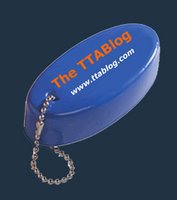Crowded Field Argument Fails, TTAB Deems MARIO'S for Clothing Confusable with MARIO'S 3.10 for Retail Apparel Stores
Despite some two dozen third-party registrations for MARIO-formative marks for clothing and footwear, the Board affirmed a refusal to register the mark MARIO'S for boots, dresses, shirts, and various other clothing items, finding confusion likely with the registered mark MARIO'S 3.10 for "retail apparel stores." Noting that "[r]etail store services have frequently been found to be related to goods sold by those retail stores," the Board deemed the involved goods and services "related on their face[s?]." But what about the marks? In re Mario’s LLC, Serial No. 98460342 (January 27, 2026) [not precedential] (Opinion by Judge Cheryl S. Goodman).
The third-party registrations for MARIO-formative marks were considered with respect to the conceptual strength of the cited mark. Applicant also submitted evidence of use for some of the registrations, and that evidence may be considered vis-a-vis both conceptual and commercial strength.
The third-part registered marks included MARIO MILLIONS, CHEERFUL MARIO, SUPER MARIO BROS, MARIOKART, JOY&MARIO, MMMM MARIO’S, MARIO CALDI, MARIO BERLUCCI, MARIO FAGNI, MARIO VALENTINO, MARIO ROSSI, MARIO SAMELO, MARIO PELLINO and Design, MARIO BEMER USA, and MARIO HERNANDEZ. (Some of the registrations were owned by the same registrant.) Applicant argued that, in light of this "crowded field," MARIO marks should be "narrowly construed." The Board was not persuaded.
Many of these registrations (and uses) do not contain MARIO/MARIO’S standing alone or in combination with generic or descriptive wording and are far more dissimilar than the cited mark.
The addition of a surname to MARIO in many of the marks "distinguishes these marks’ commercial impression. When considered with clothing or footwear, each of these marks engenders the impression of a fashion designer, with the first name of less (or equal) prominence, the addition of a surname to MARIO distinguishes these marks’ commercial impression. When considered with clothing or footwear, each of these marks engenders the impression of a fashion designer, with the first name of less (or equal) prominence."
We also find the two JOY&MARIO marks have a different commercial impression due to the use of two personal names. Similarly, we find that the three SUPER MARIO marks and the MARIOKART mark have the commercial impression of a Nintendo video game and are distinguishable
The Board focused on MMMM MARIO’S, which it found to be the most probative, and CHEERFUL MARIO, and MARIO MILLIONS, which it deemed somewhat probative, "all showing the personal name MARIO/MARIO’S as a component of a mark with other matter." However, the Board found these registrations "too few in number to establish that the MARIO’S component of Registrant’s mark is relatively weak and entitled only to limited protection." And so, it deemed the sixth DuPont factor neutral
Turning to the marks, the Board found that the presence of the number 3.10 in the cited mark lends a slightly different connotation (suggesting that it is the third store owned by the registrant) than that of Applicant’s MARIO’S mark, but that difference was outweighed by the similarity in connotation resulting from the presence of the word MARIO’S in each mark. "Consumers familiar with the MARIO’S 3.10 mark are likely to perceive MARIO’S as a product line of that brand."
Weighing the relevant DuPont factors, the Board concluded that confusion is likely, and so it affirmed the refusal.
Read comments and post your comment here.
TTABlogger comment: The crowded field argument is often made but seldom succeessful.
Text Copyright John L. Welch 2026.





















